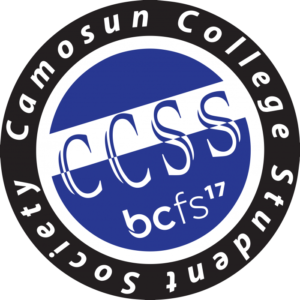The Camosun College Student Society (CCSS) will be hosting its bi-annual student elections this month, with the voting period occurring from Monday, October 23 until Wednesday, October 25. Students may start noticing posters decorating the school as the election campaign period began on Saturday, October 7 and continues until Sunday, October 22.
All Camosun students should receive an email on Monday, October 23 containing a link and instructions for casting online votes.
CCSS external executive Jagjeet Singh says that the elections will allow students to select the best candidate to ensure their voices are heard at Camosun.
“CCSS is the voice of students on campus,” he says. “So, the elections are basically to elect our student leaders for the year so that we make sure that our students represent themselves. And it’s a platform for our students to come forward and get elected in their positions and make the change that they want to make by themselves.”
Singh says that the CCSS will be engaging with students to ensure a large turnout of voters for this election season.
“We will promote it on social media,” he says. “Candidates are free to put up posters and talk to fellow students. We will be talking to the students also if someone has any concerns or issues or questions about elections, and basically, we try to promote it as much as we can so that we can get as many votes as possible.”
Singh believes that there are many different reasons why students should participate and vote, one of the main ones being that the CCSS advocates on behalf of the students, so selecting a candidate that matches students’ values is essential.
“The major thing is these elections are where student leaders are elected democratically and to find the best candidate for themselves,” says Singh. “Elections are the opportunity for our students to choose their own student leaders. [This] is really important because those leaders will represent our students at different levels in society. And a lot of the time we represent ourselves in front of college administration, so we need to make sure that with the help of our students, we can get the best candidates elected.”
This election will include two referendum questions. One is asking for a raise in the amount of the Nexus student levy fee.
“Nexus is the free voice for our students, where they can say what they want to say and make sure that [student] voices are heard,” says Singh. “Nexus has been struggling operationally with the funding right now, so to make sure that the free voice—which Nexus is on campus—remains, we are doing a referendum so that we can have more funding for Nexus.”
The other referendum question is asking for a raise in fees going toward the Canadian Alliance of Students Associations (CASA), which all Camosun students are members of.
“We have [the referendum question] for the Canadian Alliance of Student Associations, CASA, that we are a member of, it is a federal organizing body,” says Singh. “It’s very important to have a federal voice for things like student financial aid… A lot of decisions regarding international students, a lot of decisions regarding Indigenous students… those supports come from the federal bodies.”
An example of the advocacy happening by the CCSS took place on Thursday, October 5, when Singh went to the Parliament Buildings to speak on current issues affecting students, including problems with funding.
“I got to go to the legislature [and talk] with MLAs for the BC government and let them know the issues that our students are having, we need more funding in our institutions, all of those things,” he says. “We have to do that by ourselves. CCSS is run by students for the students. Elections are the first step you can make to make a change in your life or the lives of your fellow students.”
The most beneficial aspect of the election to Singh is hearing from the newly elected board members.
“One of the biggest benefits, which I’ve observed personally, is we get new, fresh, and different perspectives, which is really important because year after year, new students will be coming in who can represent themselves and their fellow students,” says Singh. “Because every student comes on the board with a different story. They have lived a different life, and learning [about them] is, I think, one of the best things because then we can improve ourselves even more.”

